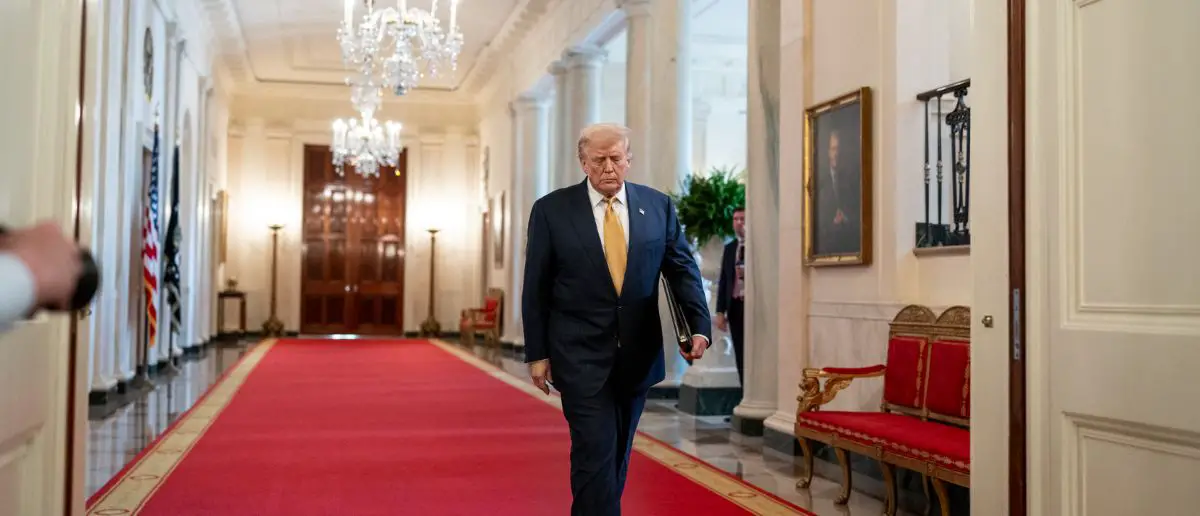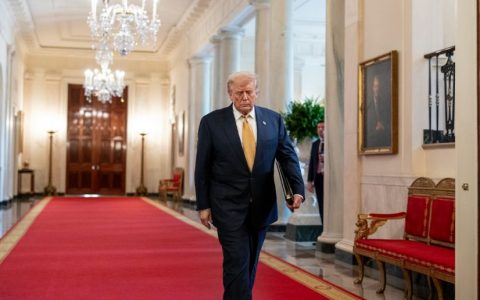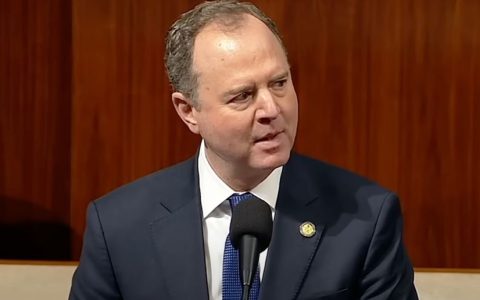
The radical Left has been suing Donald Trump’s administration every week. That is backfiring.
Because the U.S. Supreme Court is preparing to hand Trump these huge wins.
Judicial Challenges to Trump’s Actions Could Ultimately Serve His Long-Term Objectives
Numerous legal challenges targeting the early actions of the Trump administration, including temporary blocks on spending freezes and reinstatement of removed health agency pages, could inadvertently provide an opportunity for President Trump to shape the future of executive power in the United States, legal experts argue.
GianCarlo Canaparo, a senior legal fellow at The Heritage Foundation’s Edwin Meese III Center for Legal and Judicial Studies, told the reporters that these judicial interventions, while designed to disrupt Trump’s agenda, might in fact strengthen his position in the long run. “Ironically, in rushing to trip up Trump, these judges may empower him when all is said and done,” Canaparo stated, explaining that some judges have misinterpreted the law and their own authority. He further noted, “Not only do I expect they will ultimately be reversed on appeal, but by overreaching they have given Trump exactly the vehicles he wants to overrule some of those old Supreme Court precedents.”
Canaparo also emphasized that the judicial overreach in these cases has paved the way for a significant challenge to nationwide injunctions, a form of legal relief that the Supreme Court is reportedly inclined to abolish. This, he believes, could help further Trump’s long-term objectives related to the scope of executive power.
Trump administration officials, including Vice President JD Vance, have sharply criticized judges for blocking actions that fall within the president’s constitutional authority. For instance, a federal judge in Maryland recently blocked a Trump executive order restricting hospitals that perform child s*x-change procedures from receiving federal funds. Similarly, another judge in Washington, D.C. temporarily halted Trump’s effort to end foreign aid contracts and grants issued prior to his inauguration.
In another notable case, a federal appeals court denied the administration’s request to lift an order blocking its freeze on certain funding. However, the judge clarified that the freeze did not prevent the administration from halting funding based on specific statutory, regulatory, or grant terms, allowing the Trump administration to proceed with ending funding for migrant housing in New York.
The Communists don't have enough judges and we ultimately have the Supreme Court.
The Trump Court.
😎 A federal judge has determined that President Trump does indeed possess the constitutional power to freeze or restrict specific federal funds.
Consequently, the Trump… pic.twitter.com/O2122RupdJ
— 🇺🇲Salty Texan (@texan_maga) February 12, 2025
Donald Trump’s DOJ Stands Its Ground In The Face Of Legal Battles
Meanwhile, the Department of Justice (DOJ) is defending a number of other executive orders, including those targeting gender ideology and the termination of birthright citizenship. The latter, which has already been blocked by four federal judges, is expected to eventually reach the Supreme Court. If that occurs, experts predict that the lasting effect of Trump’s actions could revolve around reshaping the understanding of executive power.
Mike Davis, founder of the Article III Project, shared with reporters, “President Trump is acting fully within his Article II powers with these executive orders. Activist judges are attempting to steal his executive power over nothing more than political differences. This is unacceptable, and these activist judges are creating a constitutional crisis. If it comes to the Supreme Court to put an end to this, then so be it.”
Harvard law professor Jeannie Suk Gersen, in an analysis for The New Yorker, suggested that Trump’s early actions were always expected to be challenged in court, ultimately reaching the Supreme Court. Gersen wrote, “This makes Trump’s legal strategy intelligible,” observing that the legal battles, while chaotic on the surface, seem to be part of a deliberate and organized effort to provoke lawsuits that could set the stage for establishing a constitutional vision where the president holds exclusive authority over the entire executive branch.
Additionally, Acting Solicitor General Sarah Harris informed Democratic Senator Dick Durbin of Illinois on Wednesday that the Trump DOJ would seek to overturn a nearly century-old Supreme Court precedent that prevents presidents from removing agency officials without cause. Harris clarified that the administration intends to urge the Supreme Court to overrule Humphrey’s Executor, a decision that restricts presidential control over the leadership of agencies within the executive branch. According to Harris, this precedent has already been weakened by recent Supreme Court rulings.
In yet another development, a judge ordered the reinstatement of Hampton Dellinger, the head of the Office of Special Counsel, after Trump had announced Dellinger’s dismissal.
Canaparo, commenting on the vast implications of these legal events, argued that while the president’s role should not extend into legislative policymaking, the executive branch must remain fully accountable to the voters through the president. “The president should not be our chief lawmaker, but he is our chief executive,” Canaparo said, stressing that this distinction, which the Founders understood, has been largely forgotten today.
While judges have temporarily halted some of Trump’s initiatives, these legal challenges may ultimately contribute to the president’s remaining goal of redefining the balance of power between the branches of government. If these cases continue to progress toward the Supreme Court, the outcome could have far-reaching consequences for the future of executive authority.
The American people know serious change needs to take place in our federal government after years of corruption and weaponization.
The activist judges trying to block President Trump must face the repercussions of their bogus actions.
It is time for the Supreme Court to use… pic.twitter.com/myOXoo3pin
— 🇺🇸 Mike Davis 🇺🇸 (@mrddmia) February 11, 2025
Stay tuned to the DC Daily Journal.





